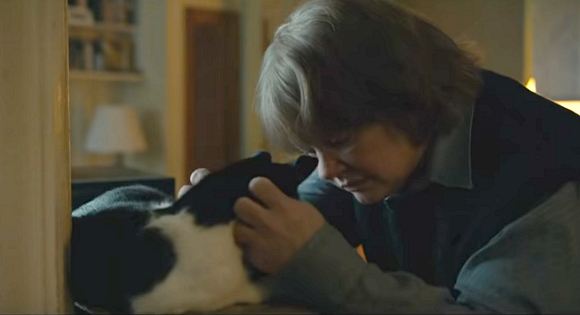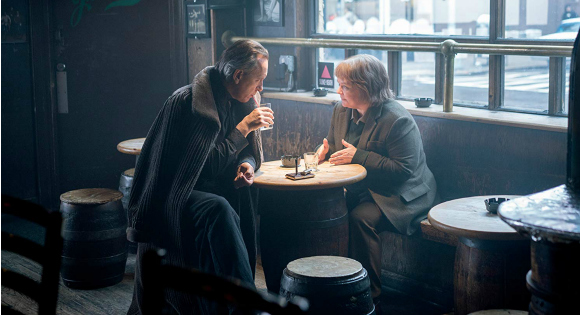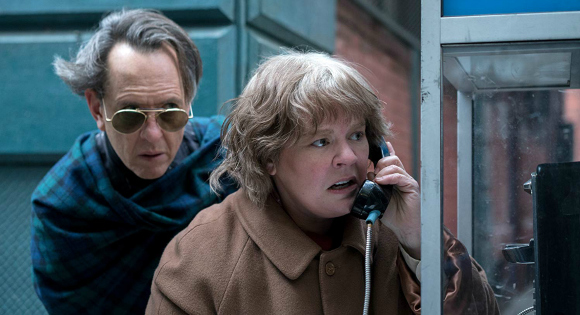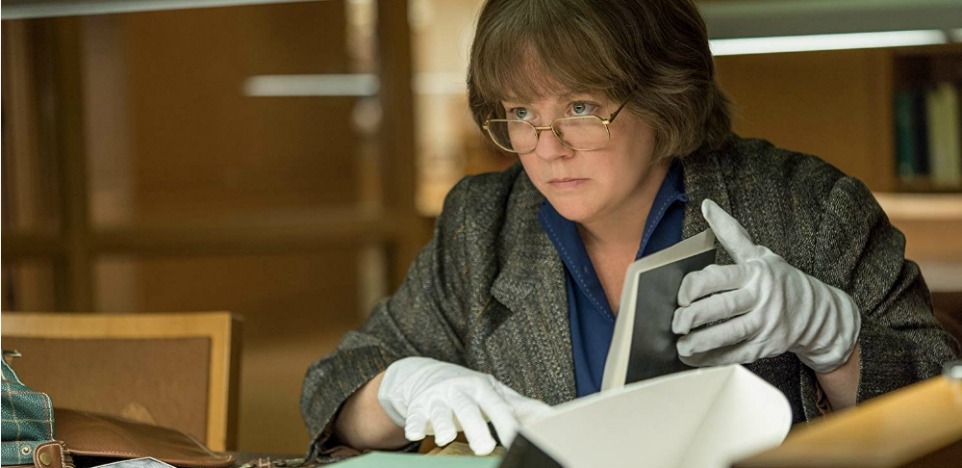Lee Israel (Melissa McCarthy) has hit bottom at the beginning of Marielle Heller’s irresistibly caustic and surprisingly insightful Can You Ever Forgive Me? A bestselling celebrity biographer in the 1970s and '80s, Israel has just lost a degrading desk job, can’t get her agent (Jane Curtin) to answer her calls, pays more attention to her rocks glass than her writer’s block, is three months behind on the rent in her bug-infested apartment, and is determined to get her beloved cat to the vet, where an outstanding balance gets both of them turned away.

The finicky cat has been Israel’s only sustained relationship as she has plunged deeper into self-pity and self-sabotage, avoiding her latest project, an unnecessary biography of Fanny Brice, and alienating herself from her ex-lover and strangers alike. But when she encounters a salty old acquaintance, Jack Hock (deliciously embodied by Richard E. Grant), she finds an uncommonly deserving conversation partner, just as adept at witty barbs and as frantic for attention as she is. And when Israel stumbles upon an ingenious and illegal idea to forge hundreds of letters from colorful celebrity personalities like Noël Coward and Dorothy Parker and sell them to unsuspecting collectors, her newfound glee at both entertaining an equally acerbic new best friend and reigniting her fire of inspiration is palpable. Israel might be a miserable misanthrope, but as she begins to fabricate fake correspondence in the voices of other people, something ridiculously remarkable happens: Her own artistic voice seems to emerge for the first time.

Based on Israel’s true memoir of her creatively corrupt climb out of her writer’s block and the crash that eventually caught up with her, the film works thrillingly as a playground for the formidable acting chops of McCarthy and Grant. But it also succeeds beautifully as an exploration of the pressures placed on artists to continually produce, to find and sustain their unique voices, and to do both things without compromising their integrity. The fact that Israel did compromise her integrity, grandly, and that she did it over and over again, serves both the seedier sides of the story as well as the subtly incisive and nuanced questions of what might drive an artist to such desperate actions.

The film makes no apologies for Israel or Hock’s behavior, whether quotidian or criminal, but it does paint a sensitive portrayal of two inventive outcasts attempting to survive amidst social norms too strict for their overactive imaginations and too surface-obsessed for their aching need for authenticity.
In the end, truthfulness itself is brought into question, leaving viewers to ponder their own relationships to fact and fiction, to connection and alienation, to self-possession and self-deception. And the daring inquiry of the film’s title lingers on multiple levels, a winking nod to one of Israel’s best-written forgeries, a straightforward plea from a guilty party, and an invitation to unfiltered self-reflection.
